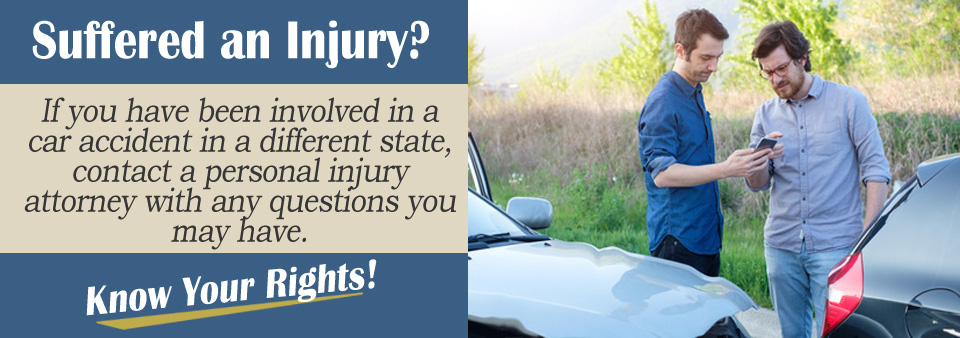Car accidents can happen anywhere and at any time. You do not have to be close to home for the unthinkable to occur. Say you are on vacation when you are suddenly involved in a collision with another driver.
You are not a resident of the state where the accident occurred, so where do you file a claim or pursue a lawsuit? Do you file in your home state or the state where the incident took place?
We have asked attorney Alaina Sullivan about what you should do. Here is what she had to say:
Jurisdiction Matters
This question ultimately comes down to the question of jurisdiction. The term jurisdiction refers to a court’s ability to hear a certain legal matter.
Jurisdiction can be determined by several factors: where the incident occurred and where the parties live, work, or primarily do business.
Pursuing Claim in State Where Accident Occurred
The first option you have when pursuing a personal injury claim is to seek compensation for damages in the state where the accident occurred, even though the incident did not occur in your home state.
Even if the person who is at-fault (the defendant) does not live in the state where the accident occurred, the court still has jurisdiction over the defendant because of where the accident occurred.
The injured party may have to travel to file the law suit since he or she does not live where the accident occurred, but the forum is arguably the most convenient one available and most often chosen.

You May Be Able to Sue in Your Home State
You may be able to pursue a personal injury claim in your home state if the person who is considered “at fault” has what is known as “minimum contacts” in your home state. Minimum contacts mean that:
- the company or person does business in your home state;
- the person maintains a home in your home state;
- the person or business involved is a party to a contract formed in your home state.
This minimum contacts test looks into whether the person responsible for your injuries and for the accident availed him or herself of the rights and benefits of your home state.
If he or she has, then you can sue that person there. Keep in mind, however, that it might be tougher to pursue an action against someone who is only minimally in your state.
Should I Sue in Federal Court?
In certain circumstances, federal court may be an option. Federal courts will hear cases when parties are from different states, otherwise known as diverse citizenship, with at least $75,000 in damages, and when the case deals with a federal question or involves federal law.
You may have a case that qualifies for state lawsuit but also qualifies for federal, as well. A personal injury attorney should be able to advise you on which would be better, a lawsuit in state or federal court.
Review Your Insurance Policy
Before you do anything, you need to review your insurance policy. Each policy is different and every state has its own set of laws. Most car insurance policies will cover all areas of the United States, as well as U.S. territories and Canada.
Therefore, you should not be too restricted if you are injured in a state where you do not live. The differences arise, however, in how the